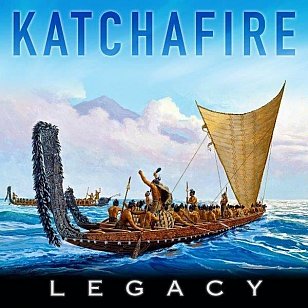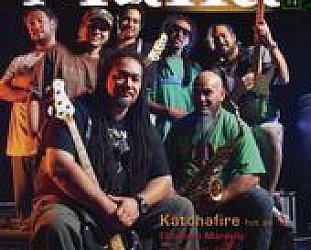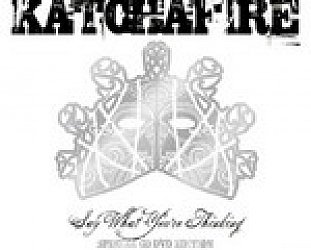Graham Reid | | 2 min read
100

Many contemporary writers with long memories or those with a decent understanding of music history quite rightly point out that when reggae emerged out of the poorest areas of Jamaica it was the rebels' and outsiders' music. And as such was frequently freighted with righteous, indignant and heavily socio-political messages.
It had global appeal for the angry, disenfranchised and marginalised people in society and in this country we look back to powerful and often incendiary reggae bands like Dread Beat and Blood, Aotearoa, Sticks and Shanty, Herbs and many others.
It's not as if the issues they addressed back then have gone away . . . but somewhere along the way (late Eighties is my guess) righteous reggae devolved into pleasantries which celebrated non-specific ideas such as universal love, vague Rastafarianism, family and reggae itself.
Nothing wrong with any of that, but to the exclusion of more penetrating ideas from an idiom founded on depth and fire?
You only need line up the 2016 album Blackbirder Dread by Unity Pacific fronted by the great Tigi Ness -- now somewhere in his late 60s at guess – to hear the distance between his historical and political insights and the bland barbecue reggae which is endemic in Aotearoa New Zealand (and admittedly hugely popular, much more so than Unity Pacific reminding us of slave traders in the Pacific, Bastion Point and so on).
Katchafire has been one of the finest of local reggae bands, although to call them local rather belies the fact they seem to be constantly on tour internationally.
But that life seems to be affecting what they now (not for the first time) sing about: The opener here despite the promising title Fyah in the Trenches is not much more than a celebration of reggae and its power to create positive vibes and them playing “this roots music every night” and the crowd wanting more: “Reggae music pays the bills and we do it for the love of it, no contract needed . . . roots, rock and reggae”.
Katchafire are increasingly singing about themselves, and that - unless thery cam make it universal -- is self-centred and far from interesting.
And as the album rolls out there are more celebrations of the healing power of reggae (I Can Feel A Lot); missing home and family because of a full touring schedule on a six week tour (100); coming home soon and singer's the love being true (One More Day); universal love being a weapon to change the world (Walk With Me); personal love (Ain't Gonna Give Up, Wasted with a soulful disco influence, Luv Plan); friends and family being all you need (Way Beyond) . . .
Addicted alludes to the strife in this world (“society's so fickle and torn . . . why are we divided by walls and so ready to war?”) but defaults quickly back to “I'm addicted to you . . . you got me hook line and sinker”.
This is barely deeper than the skin of life.
Now, all of these songs are beautifully realised by the band (the horn section is outstanding) and they discreetly pull from hip-hop, rock guitars, lovers rock, r'n'b and such to offer musical diversity within the genre and some guests (Anuhea a special presence on Ain't Gonna Give Up).
There is also a discreet but discernible Pacific reggae feel on Luv Plan.
Katchafire remain one of the most musically interesting and professional of the reggae bands to come out of this country and Elsewhere has been behind them for many, many years.
But as we noted in our review of the last Auckland City Limits where they played before a huge and appreciative crowd, they are now a brand as much as a band.
A very reliable brand and this album won't disappoint loyalists, but too often this offers surface polish over much of any depth and substance.
Round my way I've just packed up this particular barbecue.
There is more about Katchafire at Elsewhere starting here.





post a comment